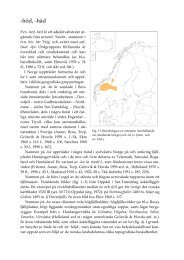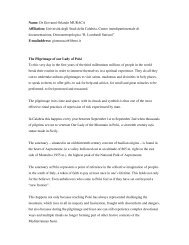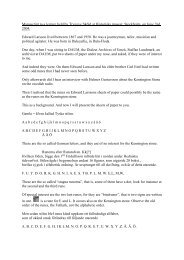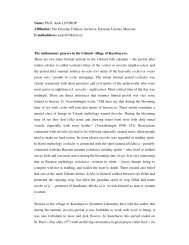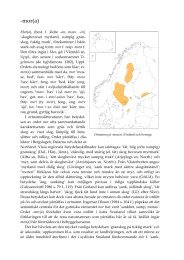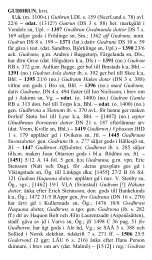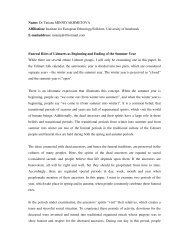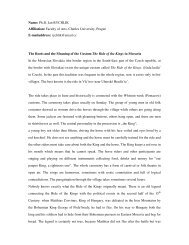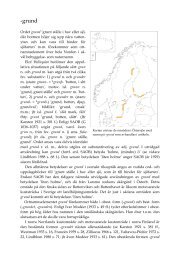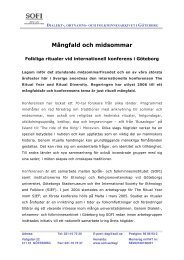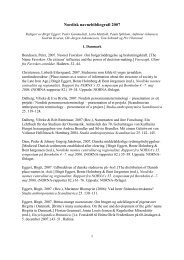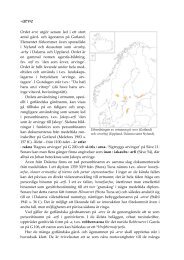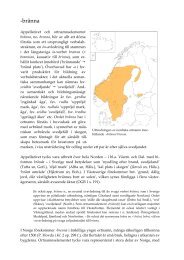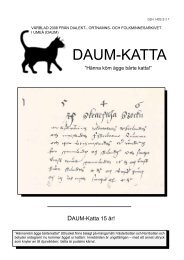NORNA-RAPPORTER 88 Binamn. Uppkomst, bildning, terminologi ...
NORNA-RAPPORTER 88 Binamn. Uppkomst, bildning, terminologi ...
NORNA-RAPPORTER 88 Binamn. Uppkomst, bildning, terminologi ...
You also want an ePaper? Increase the reach of your titles
YUMPU automatically turns print PDFs into web optimized ePapers that Google loves.
Zaitunisa : Olive<br />
Zaitun : No meaning<br />
Shameema : Fragrance<br />
Meema : No meaning<br />
Shahieda : Martyr, witness<br />
Hieda : No meaning<br />
Sameega : Jovial, companion<br />
Meega : No meaning<br />
Nafeesa : Precious, valuable<br />
Feesa : No meaning<br />
Bynames as an expression of identity 31<br />
3. Affective diminuation (of first names)<br />
A very popular category for many languages is the case of what appears to be<br />
diminuation. With longer names it may lead to abbreviation or shortening, although<br />
the diminuation in many cases actually leads to a lengthening of the<br />
name. In both Afrikaans and English the common diminutive forms are characterised<br />
by -i, -(tj)ie, or -y. Examples:<br />
Bernita > Bernie Margaret > Maggie<br />
Janine > Janie Chanelle > Nelli<br />
Sophia > Sophie Esmeralda > Essie<br />
Samuel > Sammy Chine > Neitjie<br />
Lee-Ann > Lee-Antjie Monique > Nikki<br />
Liezel > Liezeltjie Lucinda > Cindy<br />
Candice > Candy Donovan > Donnie<br />
Enrico > Ricky Winifred > Winnie<br />
Heinrich > Heini Judith > Judy<br />
There are many examples of this kind and it is probably fair to say that it is a<br />
common category in many different languages (although the form of the diminutive<br />
suffix may obviously differ). What is interesting from a morphophonological<br />
point of view, is the reduplication of a consonant effected by the diminuation,<br />
as well as the different phonological representations for the same sound<br />
in the affective name e.g. the /q/ in Monique ([k]), is represented as /k/ in the<br />
diminutive form Nikki. The /c/ in Enrico ([k]), becomes /ck/ in Ricky ([k]). The<br />
case for Xhosa, however, is not clear. Xhosa has only one productive diminutive<br />
suffix, i.e. -ana. This suffix connects morphophonologically and in a regular<br />
way with the final vowel of nouns, e.g.<br />
umntu ‘a person, adult’ + -ana > umntwana ‘child’<br />
isikolo ‘school’ + -ana > isikolwana ‘small school’<br />
inja ‘dog’ + -ana > injana ‘small dog, puppy’



